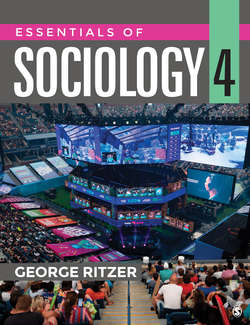Читать книгу Essentials of Sociology - George Ritzer - Страница 176
На сайте Литреса книга снята с продажи.
Authority Structures and Bureaucracy
ОглавлениеWeber’s work on bureaucracy is related to his thinking on three types of authority structures. Before getting to those types, we need two preliminary definitions. Domination is the probability, or likelihood, that commands will be obeyed by subordinates (Weber [1921] 1968). There are degrees of domination. Strong domination involves a high probability that commands will be obeyed; domination is weak when those probabilities are low. Authority is a particular type of domination: legitimate domination. The key question, then, is what makes authority legitimate as far as subordinates are concerned.
Many Americans, especially those who attend his rallies, seem to see Donald Trump as a charismatic leader. However, his real authority stems from the rational-legal basis that he won a majority of the electoral college vote in 2016.
Aude Guerrucci—Pool/Getty Images
The traditional authority of King Salman of Saudi Arabia is based on his inherited position as a member of the House of Saud. He succeeded his half brother as king in 2015.
Bandar Algaloud / Saudi Royal Council / Handout/Anadolu Agency/Getty Images
Mahatma Gandhi came to lead India on the basis of the view of his followers that he was charismatic.
Bettmann/Getty Images
Weber differentiates among three types of authority:
Rational-legal authority is domination legitimated based on legally enacted rules and the right of those with authority under those rules to issue commands. For example, the president of the United States has rational-legal authority to take a variety of actions, such as appointing federal officials, because the president is duly elected in accordance with the country’s election laws. It is also legitimate for the president in the role of commander in chief to issue various commands, such as to order the use of troops in the case of an attack on the United States.
Traditional authority is based on belief in long-running traditions. For example, IS’s caliphate (see Globalization box later in this chapter) was based on traditional authority. Although the pope is elected by the College of Cardinals, his authority within Catholicism is based primarily on the long traditions associated with his position.
Charismatic authority is based on the devotion of followers to what they define as the exceptional characteristics of a leader. Large numbers of people believed that Martin Luther King Jr. and Mahatma Gandhi had such exceptional characteristics and, as a result, became their devoted followers.
Trending Working for Respect: Community and Conflict at Walmart (Columbia University Press, 2018)
